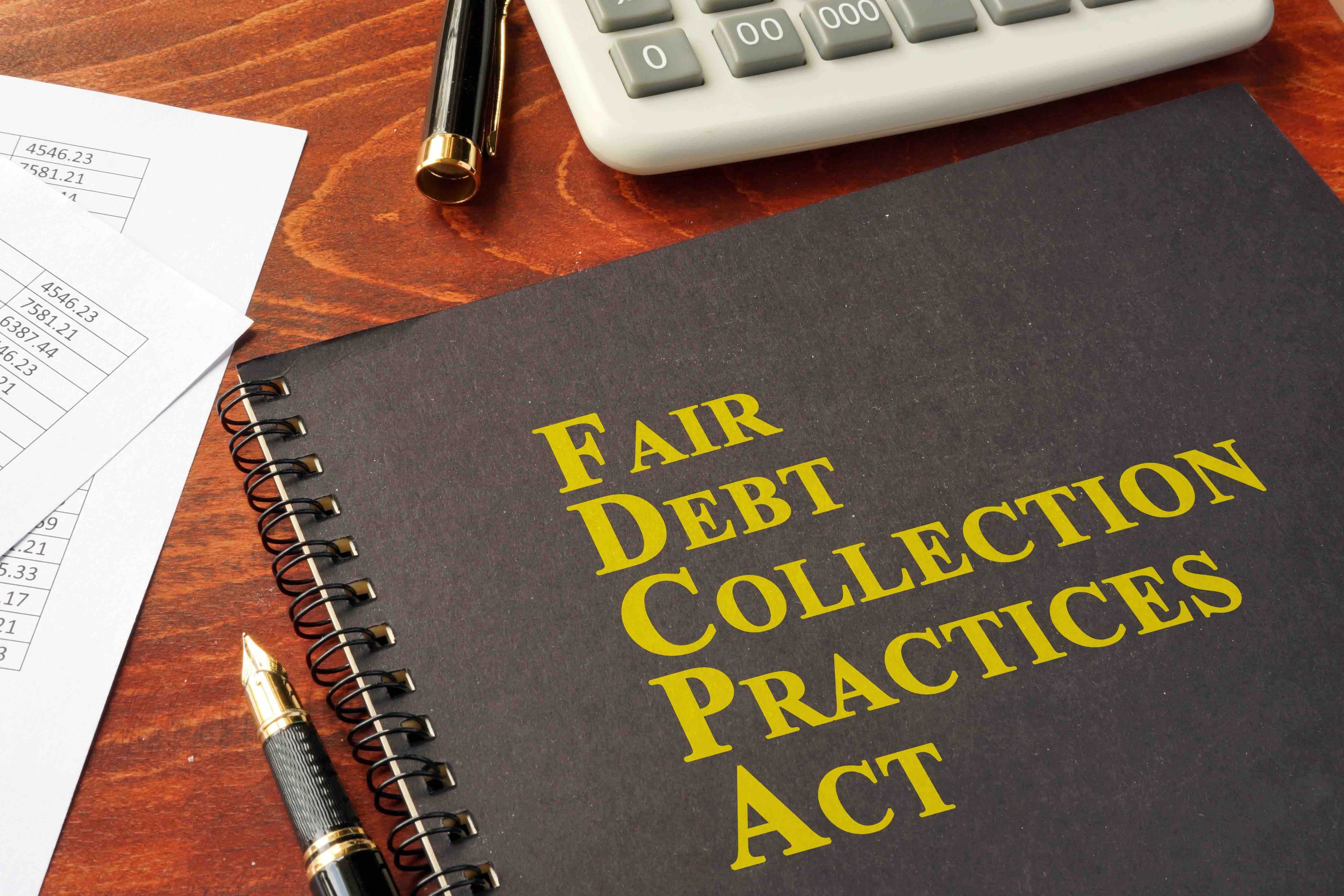The Fair Debt Collection Collection Act (FDCPA) was enacted in 1977 to curb consumers’ abuse and harassment by debt collectors. It addresses the collection of debts by creditors and by third-party debt collectors. When the law was enacted, the only technology available to contact consumers were phones, the mail, and knocking on their door. Computers existed, but most of them still took up an entire room. There has been informal accommodation for technology changes; from the Act’s passage until today, nothing has formally addressed the massive changes in technology that have taken place in the last 43 years. The final rule issued by the Consumer Financial Protection Bureau (CFPB) released on October 30, 2020, finally gives debt collectors explicit permission to use a wide range of modern technologies to contact consumers while limiting how they can use technology.
Summary Of The Final Rule
This is the first significant overhaul of the FDCPA since its inception. It addresses the following procedural and technological issues:
- Clarifies time and place restrictions for communicating with consumers;
- Clarifies that the consumer may restrict contact to a particular medium such as email;
- Clarifies the FDCPA’s prohibition on continuous telephone calls;
- Clarifies and limits how new technologies such as email and text messages can be used for debt collection purposes;
- Clarifies standards for retaining records;
- Clarifies that the same rules apply to a personal representative for a deceased consumer;
- Prohibits the sale, transfer for consideration, or placement of certain types of debts;
- Defines the new term “limited-content message,” permitting a debt collector to leave such a message on an answering machine and
- Provides some guidance on requiring debt collectors to provide additional disclosures and specifies how they must be communicated, with the expectation that a more disclosure focused rule will be published in December.
What Channels Can Debt Collectors Use To Contact Consumers?
- Limited-Content Message:
The CFPB decided that allowing debt collectors to leave messages would benefit both consumers and debt collectors by reducing the need for repeated calls. Debt collectors may now leave a limited-content message on voicemail, via text message, or with a third-party that only provides the company they work for and a way to contact them. Due to the risk of being perceived as spam, a limited-content message may not be sent via email. - Voicemail:
A voicemail message is considered a communication, and all the rules regarding time and repetition apply. If the debt collector does not leave a message, the rules governing attempted communication still apply. - Emails and Text Messages:
All of the FDCPA’s prohibitions on harassing, oppressive and abusive conduct now explicitly apply to communication with emails and text messages. False, deceptive, or misleading representations or means now specifically apply to emails and text messages as well as phone calls.
What Are The Limitations For Debt Collectors?
Debt collectors may now use modern technology to contact consumers, but there are also many limitations on their use. The concern that expanding technological options would result in more contact is addressed by the consumer’s ability to restrict communication to a specific medium. For example, a debt collector must now honor a consumer’s preference for only receiving emails regarding the debt collection. This was opposed by groups representing debt collectors, knowing that this could effectively stifle their ability to contact consumers who may set up a filter that automatically places the debt collector’s emails in a junk folder or deletes them. The new rule also allows consumers to express their preference in plain language, taking away a loophole used by debt collectors, claiming that a consumer didn’t use the right words to express their preference. The new rule specifies that the consumer need not “utter specific words to be afforded statutory protections.” For example, if a consumer states that they cannot receive personal calls at work, it would be considered a request not to be contacted by a debt collector at their place of employment. If the consumer says that their phone is work-based and cannot be used for personal communication, the debt collector must not send text messages about debt to that number. Exceptions to these limitations can only be made with the express prior consent of the consumer.
Opting In and Opting Out
Since text messages can sometimes cost consumers money to receive, they can only be used to contact consumers if they have specifically opted-in for receiving text messages. Consumers may opt-out of receiving electronic communications while still controlling the time, place, and media that they can be used to communicate with them. The new rule also gives broader latitude to methods a consumer may use to opt-out, taking away a significant loophole that debt collectors have developed that has hindered consumers from effectively asserting their right to opt-out. The new disclosure rules also require instructions for a reasonable and straightforward method for a consumer to opt-out. It also requires that consumers be provided with a reasonable amount of time to opt-out but does not specify the amount of time. The debt collection industry opposed these limitations, claiming that when consumers provide email addresses and cell phone numbers to businesses, it was implied that they would be contacted using these channels. The CFPB decided in favor of the rules allowing consumers to opt-in and opt-out.
Have Updates Been Made Based On Stakeholder Input?
Proposed rules are published in advance to give consumers, industry, and other external stakeholders the opportunity to comment on how they perceive the rules’ impact. This rule has been subject to a thoughtful and deliberative process that’s considered over 14,000 comments from stakeholders. Some of the changes based on this feedback include establishing a presumption about the number of calls that can be made weekly and setting limits on communicating with third parties about a consumer’s debt. The opt-in and opt-out requirements were based on input from consumer groups concerned that the new rule might encourage more contact with consumers from debt collectors.
Concerns From Consumer Advocates
Consumer advocates applaud the CFPB for increasing consumers’ ability to opt-out of communication, increased disclosure requirements, and the upcoming limitations on collecting time-barred debt, but feel the new rule doesn’t go far enough to protect consumers. They are disappointed that the debt collectors are still allowed to contact consumers much too often. They are concerned that it now opens up more avenues to harass consumers using the latest technology. They stress how this is especially harmful during a Pandemic and time of economic downturn that has hit communities of color especially hard. More than 233 consumer advocate groups have submitted comments opposing the proposed rule, believing that it will increase harassment of consumers and further obscure consumer rights.
What Obligations Do Debt Collectors and Creditors Have?
The final rule clarifies debt collectors’ obligation to retain records that show compliance with laws and regulations. It also clarifies that debt collectors obligations when responding to duplicative disputes. Consumers are obliged to comply with their payment plans, and if those obligations are unmet, the debt collector may send the account to a third party for collection.
About ABC Legal Services
ABC Legal is the nation’s leading service of process and court filing company and is the official process server to the U.S. Department of Justice. Docketly is a subsidiary of ABC Legal, providing appearance counsel on a digital, custom-built platform that smoothly integrates with our applications and services. ABC Legal’s applications are cloud-based and compatible for use on desktop, browser and smartphones. Our solutions and digital approach ensure process server partners, law firm customers and their clients save valuable time and resources when serving legal notices safely and with maximum compliance, control and transparency. ABC Legal is based in Seattle, WA, with more than 2,000 process servers throughout the U.S., as well as internationally in more than 75 countries. To learn more about ABC Legal, our solutions and subsidiary company Docketly visit www.abclegal.com.
Written by
ABC Legal ServicesService made simple—down the road and across the country. Join the 50,000+ professionals who trust ABC Legal for service of process.








